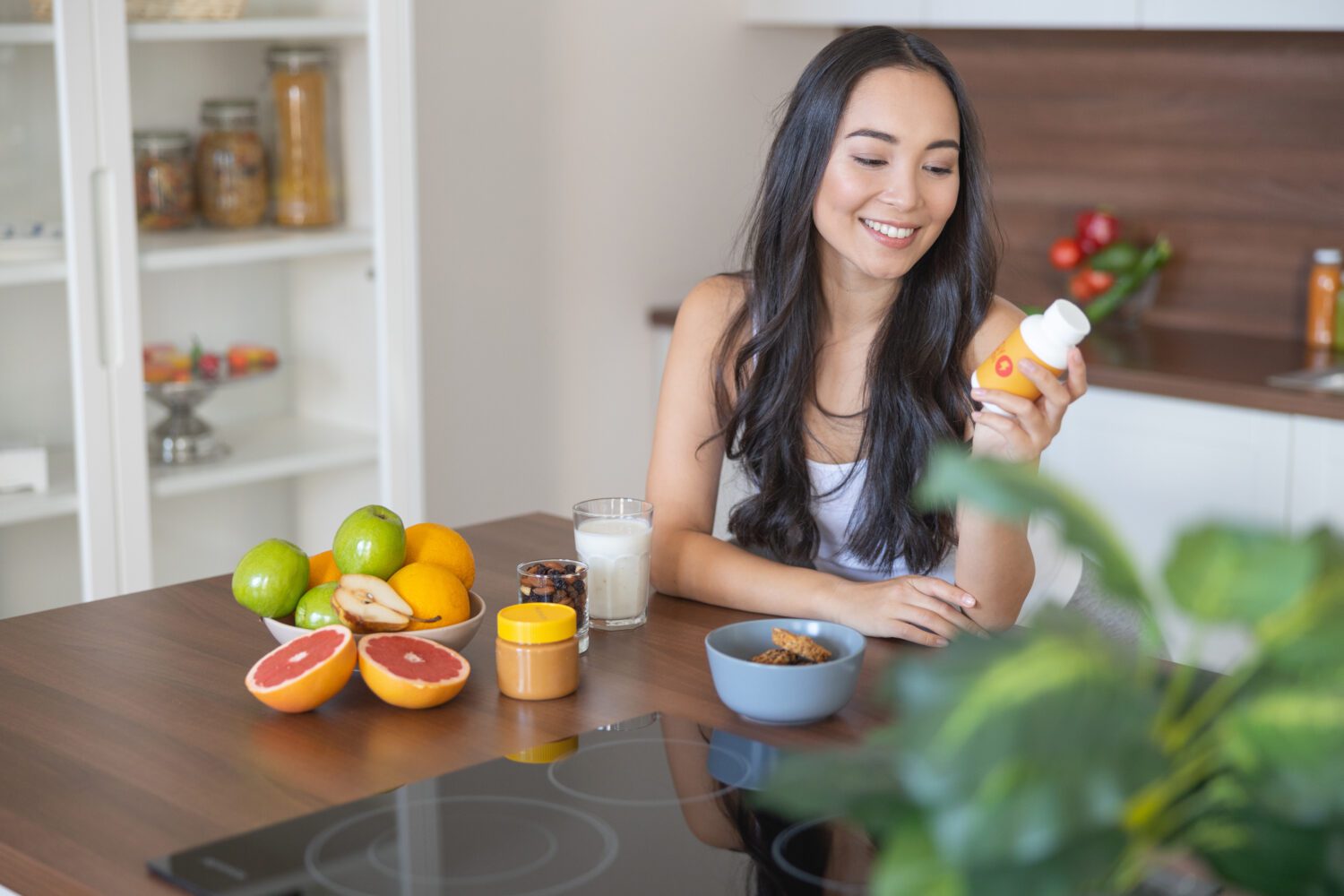What can help my IBS?
Your schedule is packed and you have a lot to get done today, but before you can get started, the abdominal pains kick in. Then the diarrhea or constipation. You go “number 2” but the pain may only go away for a little while. Next thing you know your bowel issues have you stuck in the bathroom, ruining your plans and your day. Anyone can have stomach discomfort occasionally, but according to Dr. Carrie Connett with CMC Primary Care-Prince Creek, if you experience these symptoms three days a month or more, for the past three months, you may have irritable bowel syndrome (IBS).
What is irritable bowel syndrome?
IBS is frustrating because it’s hard to determine the cause and it can be painful and very inconvenient. “IBS affects the large intestine, causing cramping and bloating,” explains Dr. Connett. “Some people with IBS have constipation while others have diarrhea. Some people alternate between constipation and diarrhea. These attacks are recurrent causing a lot of discomfort for the people afflicted with them, both physically and mentally. It’s a hard condition for people to discuss.”
Approximately 20-40% of all visits to a gastroenterologist are due to IBS symptoms. Statistics show that people with IBS restrict their activities an average of 73 days per year. If you are one of those dealing with the hindrances of IBS, you are probably seeking ways to minimize or eliminate its burdensome symptoms.
Unpredictable Symptoms
“When it comes to IBS everyone deals with abdominal pain,” says Dr. Connett. “Along with that, you may experience other symptoms that can vary and change over time or occur at the same time. Things like diarrhea, constipation, gas, or bloating. The symptoms can be unpredictable, they can pop up at any time and you don’t know how long they will last. So it’s not just painful but incredibly frustrating and people who suffer with it tend to feel pretty self-conscious about it.”

In fact, you may feel anxious about going out, being in unfamiliar places or roaming too far away from a restroom. Unfortunately, anxiety can exacerbate IBS symptoms. Also, people with anxiety, depression, and other mental health conditions may be at a higher risk of developing IBS.
What can I do to manage my IBS?
While there is no cure, doctors can help people manage their IBS symptoms. Making some lifestyle changes to eliminate possible triggers for IBS episodes may be the best option for you.
Determine your food triggers
Diet can have a huge effect on IBS symptoms, and everyone has different food triggers. Some people tolerate dairy, while others find a glass of milk an unwelcome trigger. Being mindful of your diet and immediate symptoms can be helpful in determining which foods trigger your IBS.
Cutting out foods that are known to cause flare-ups can be helpful. Fried foods, coffee, caffeine, and alcohol are known bowel irritants. It’s a good idea to avoid large meals and those that are high in fat, as well as foods that can cause gas like beans, cabbage, broccoli, raisins, and onions.
Dr. Connett stresses “It’s helpful to eliminate certain foods from your diet to determine if your symptoms continue. Add those foods back a little at a time to decide if they trigger IBS symptoms. Some people find they have difficulty absorbing products with gluten, so this may be an area to examine.”
Researchers believe that certain types of carbohydrates can trigger IBS symptoms. FODMAPS are a group of short-chain carbohydrates that are poorly absorbed in the small intestine. Some studies suggest following a low FODMAP diet to combat IBS symptoms.
Some of the FODMAP foods that you should avoid:
- Lactose: Cow’s milk, ice cream, cottage cheese, and ricotta cheese
- Fructose: Found in fruits like apples, pears, and peaches. Also, in sweeteners like honey and agave and products with high fructose corn syrup
- Fructans: Vegetables, such as asparagus, Brussels sprouts, broccoli, garlic and onions. Grains like wheat and rye also contain it.
- GOS: These plant sugars are found in veggies like chickpeas, lentils, kidney beans, broccoli and soy products.
- Polyols: A group of sugar alcohols found in fruits like apples, blackberries, nectarines, plums and watermelon and some vegetables like cauliflower and snow peas.
Experiment through journaling
When you look at the FODMAPS list, the thought may cross your mind “well what can I eat?” The list of what to avoid may look extensive, but not every food is going to affect you the way it affects someone else.
“If you’re trying to determine what things are causing your IBS flare-ups, I recommend keeping a food diary,” says Dr. Connett. “Not only can this help you identify foods that exacerbate your symptoms, it can also help you identify foods that improve them. Use the diary to track the foods you’re eating and the symptoms they might cause, and begin eliminating common offenders from your diet for a couple of weeks to see if you start feeling better.”
If you want to find your own trigger foods, start with a simple, bland diet. Then you can experiment by choosing one type of “trigger food” for a week to see if your symptoms worsen or improve. Here are some foods you can focus on first:
- Dairy. Milk products can cause a flare-up. Try milk alternatives like almond, soy, or oat milk instead.
- Processed foods. Avoid foods that are high in sugar, fat, additives, and unrecognizable ingredients.
- Caffeine. Coffee, soda, and chocolate are all possible triggers of IBS.
- Beans. Baked beans, chickpeas, lentils, and soybeans
- Spicy food. Many people with IBS find spicy food intolerable, so test your limits slowly.
- Artificial sweeteners. Stay away from sorbitol and xylitol. Stevia may be an alternative you can substitute instead.
Take probiotics
Some research indicates probiotics may help IBS symptoms by adjusting the bacteria in your gut. You can get probiotics in many forms, ranging from live-culture yogurts, such as Activia, to capsules and powders.

“Probiotics are “good” bacteria that live in our gut and help maintain its health,” explains Dr. Connett. “While scientific evidence is limited, recent studies show that they may relieve some IBS symptoms like pain, bloating, and diarrhea. Test the waters and start with a cup or two of yogurt a day and see if your symptoms respond. If you have questions or concerns, talk to your health care provider about what form of probiotic and dosage may be right for you.”
Add fiber to your diet
“Fiber is a good thing to add to your diet to try to help with diarrhea or constipation,” recommends Dr. Connect. “Soluble fiber is a great way to regulate your bowel movements and soften your stool. Add it gradually though because too much fiber and not enough hydration can cause or worsen constipation. A fiber supplement may also be a good option to discuss with your physician.”
Other Lifestyle Changes
Getting a good amount of moderate exercise every day can significantly improve your symptoms of IBS. “I know it sounds counterintuitive because who wants to work out with a stomach ache, but increasing your daily activity can be a big help, not only because it can help ease bloating, but also because exercise is a great way to reduce stress and anxiety, which are both big IBS triggers.”
To counteract stress and anxiety, Dr. Connett highlights the importance of relaxation and rest. “Allow yourself time to relax and de-stress. Self-care is gut care. Make time to do things that you find relaxing like yoga, meditation, listening to music, reading, nature walks, and long baths. Maybe even talk to your doctor about therapy and anxiety medications if you feel like you are constantly stressed and anxious. And no matter what, make sure you get plenty of sleep. That’s when your body recovers.”
Make sure you are drinking plenty of water and getting enough sleep. Dr. Connett shares that “by adopting the healthy lifestyle components you commonly hear about, you’ll help your system function more efficiently. Avoid caffeine that can alter your bowel movements, and also avoid smoking which releases hundreds of toxins into your system and raises the acidity in your stomach.”

When dietary changes and increased activity aren’t effective alone, medicines can help address symptoms. Prescription medicines designed to stop pain, diarrhea, constipation, bloating and gas, and antidepressants and behavioral therapy are options to help manage IBS.
CMC has the care and support you need
Irritable Bowel Syndrome can be challenging and is different for each person. Finding what works for you may take some time and involvement. Working closely with a doctor like Dr. Carrie Connett or one of our other CMC primary care physicians will provide you with the support you need to determine the best course for managing your IBS.
You can improve your quality of life with the right IBS management strategies. Let CMC Primary Care help you start your journey towards overall relief. Book a consultation with one of our providers by contacting 843-347-8000.

Dr. Carrie Connett
Board Certified in Family Medicine/OMT by the American Osteopathic Board of Family Medicine
Medical Education
- Pikeville College School of Osteopathic Medicine
Internship
- Doctors Hospital
Residency
- Doctors Hospital
To set an appointment with Dr. Connett at CMC Primary Care – Prince Creek in Murrells Inlet, call 843-347-8000 to request an appointment today!




